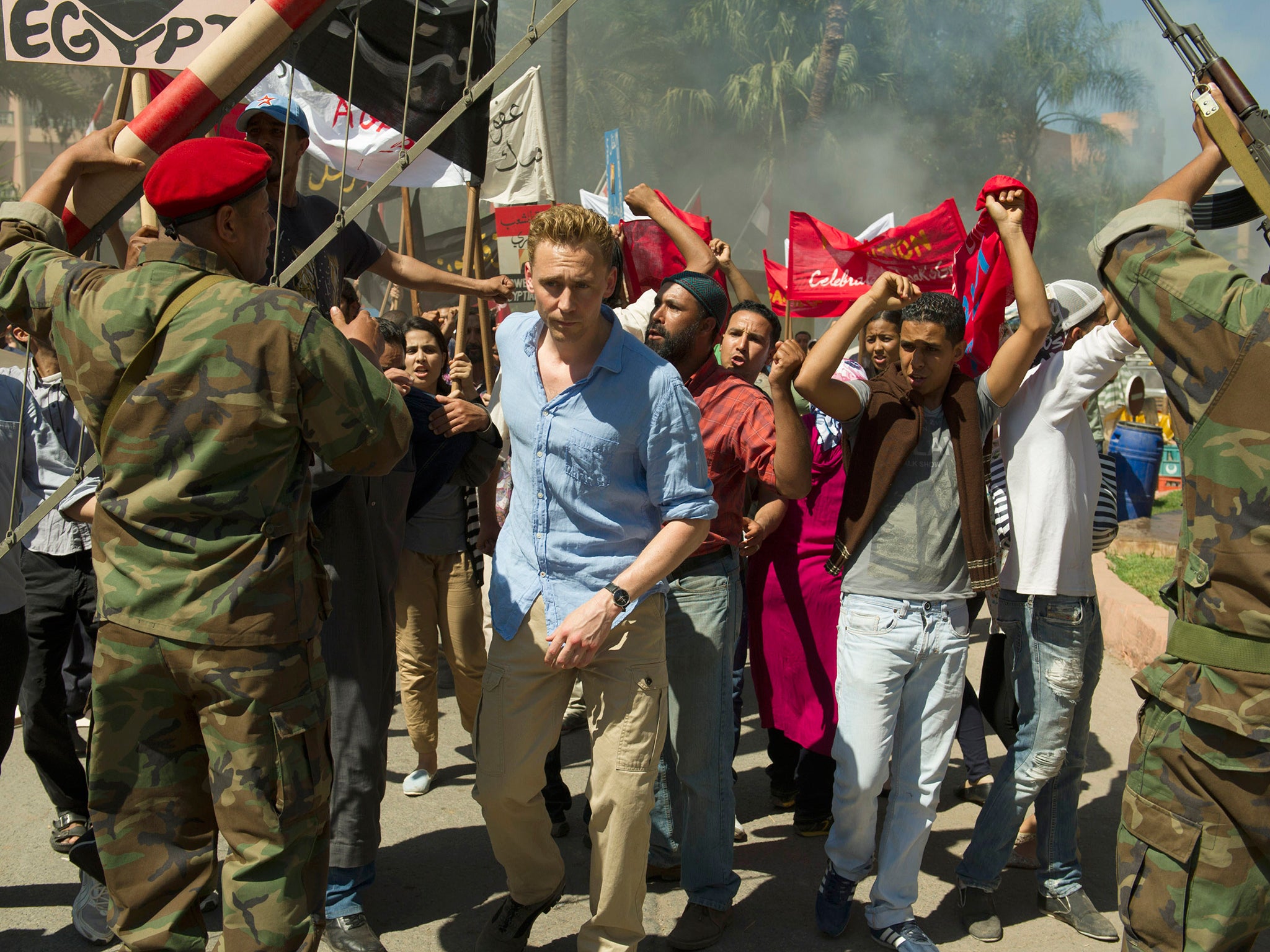The Night Manager got it wrong about illegal weapons trading - Roper would be a legitimate arms dealer in reality
Mubarak didn't need illegal weapons because he'd already been given them by Western governments


Your support helps us to tell the story
From reproductive rights to climate change to Big Tech, The Independent is on the ground when the story is developing. Whether it's investigating the financials of Elon Musk's pro-Trump PAC or producing our latest documentary, 'The A Word', which shines a light on the American women fighting for reproductive rights, we know how important it is to parse out the facts from the messaging.
At such a critical moment in US history, we need reporters on the ground. Your donation allows us to keep sending journalists to speak to both sides of the story.
The Independent is trusted by Americans across the entire political spectrum. And unlike many other quality news outlets, we choose not to lock Americans out of our reporting and analysis with paywalls. We believe quality journalism should be available to everyone, paid for by those who can afford it.
Your support makes all the difference.The Night Manager follows hotel manager, Jonathan Pine, played by Tom Hiddleston, who becomes caught up in the arms trading underworld when he is secretly given an invoice for weapons being purchased by the Egyptian government to put down the ‘Arab Spring’ in 2011.
It’s a gripping drama that does a good job of drawing attention to the black market and the international nature of the arms trade - but how realistic is it?
The reality is that the Mubarak government in Egypt had little reason to illegally source weapons for use against protesters – not least because they already possessed vast quantities of arms that had been licensed by Western governments.
In the five years prior to the uprising, European countries alone licensed around £850 million of arms to the regime. The violence and repression was no deterrent for the arms companies. Countries like the UK continued licensing arms to Egypt throughout the ‘Arab Spring’, with 20 military licenses (worth £2 million) having been agreed that year, and only one being refused.
The main provider of arms to Egypt was the US, which had been sending weapons to the regime for decades. In 2009 alone the US licensed around $2 billion of arms exports to Egypt.
Of course the lifespan of weapons is usually a lot longer than the usual two-year licence with which they are granted. That is why in 2011 Egyptian forces struck protesters with tear gas originally sold to them by the UK in the 1990s.
One point that is explored well in the show is the grey nature of the illegal arms trade. Many illegal arms transfers begin as legally recognised deals where arms companies get licences from governments. However, there is virtually no control over what happens to arms once they have been exported.
A good example of this was highlighted last October when Syrian forces were revealed to be using UK sniper rifles that had originally been sold to Russia. Similarly, one of the reasons Isis is so well armed is because it has obtained large quantities of weapons that were originally sold to the Iraqi government (including 2,300 US armoured vehicles).
Of course there are people who make millions of pounds by shifting large quantities of arms across the world and into war zones. There are those like Roper, who operate illegally and need to be brought to justice. But it is also important to remember there are many who work for multinational companies like BAE Systems, who sell their deadly wares legally and with government support, rather than having to rely on illegal back-room deals and corrupt officials.
There has always been a politically intimate and morally compromising relationship between the arms companies and the corridors of power. The links are on display every February at the ADS annual dinner, an event that brings senior politicians together with representatives of some of the biggest arms companies in the world. On top of that there is UKTI DSO, a 140 strong civil service body that exists to promote arms exports all around the world.
Are there corrupt civil servants aiding and abetting rogue arms dealers like Roper? Possibly. But the sad reality is that if he worked for one of the thousands of supposedly ‘legitimate’ arms companies then he’d have government ministers and an entire civil service department pulling out all the stops to help push his weapons. Perhaps that wouldn’t make for such good TV though.
Andrew Smith is a spokesperson for Campaign Against Arms Trade (CAAT). You can follow CAAT on Twitter at @CAATuk
Join our commenting forum
Join thought-provoking conversations, follow other Independent readers and see their replies
Comments